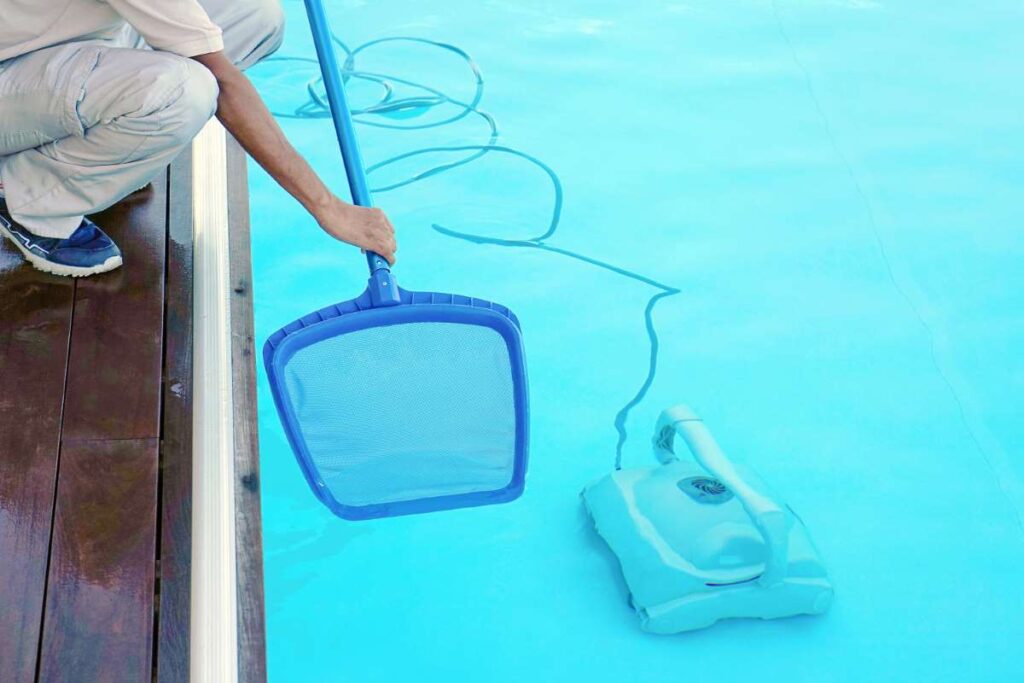How to Learn Pool Chemistry Without a Science Background
Learning pool chemistry can seem daunting, especially for those who don’t have a scientific background. However, understanding the chemistry behind pool maintenance is crucial for ensuring a safe, clean, and enjoyable swimming environment. This blog post will guide you through the essential aspects of pool chemistry, breaking down complex concepts into easily digestible segments. We’ll explore the key components of pool water balance, the importance of regular testing, and practical tips for maintaining your pool’s chemistry effectively.
To start, let’s dive into the basics of pool chemistry, why it matters, and the foundational knowledge you need to keep your pool sparkling clean.
Understanding Pool Water Chemistry
Pool chemistry refers to the balance of chemicals in pool water that ensure its safety and clarity. The primary factors include pH, alkalinity, calcium hardness, and sanitizer levels. Each of these components plays a crucial role in maintaining water quality and ensuring swimmer safety.
pH levels, for instance, indicate the acidity or alkalinity of the water, which should ideally be between 7.2 and 7.8. If the pH is too high, it can lead to cloudy water and scaling on pool surfaces; if too low, it can cause corrosion of pool equipment and irritation to the skin and eyes.
Alkalinity acts as a buffer for pH, helping to stabilize it against fluctuations. The ideal total alkalinity level is between 80 and 120 ppm (parts per million), which can help prevent sudden changes in pH. Understanding these basics is essential for anyone looking to maintain their pool effectively.
The Importance of Regular Testing
Regular water testing is a fundamental practice in pool maintenance. Testing kits or strips can provide quick readings of pH, alkalinity, and sanitizer levels, allowing pool owners to make informed decisions about chemical adjustments. Without regular testing, you risk creating an environment that could harm both swimmers and the pool itself.
Consider testing your pool water at least once a week during the swimming season and more frequently during heavy use. The results will inform your chemical adjustments, ensuring the right balance is maintained. For instance, if the pH level is low, adding a pH increaser will be necessary. Conversely, if the levels are too high, a pH decreaser will be required.
It’s also worth noting that different pool types—chlorinated, saltwater, or brominated—may require specific testing protocols. Familiarize yourself with the requirements of your pool type to cater to its unique needs.
Types of Pool Chemicals and Their Functions
Understanding the various chemicals used in pool maintenance is crucial. Chlorine is the most common sanitizer, effectively killing bacteria and other pathogens. However, it must be kept at the correct level, usually between 1 to 3 ppm, to ensure its effectiveness without causing irritation.
Another essential chemical is stabilizer, which protects chlorine from degrading under sunlight. This is particularly important in outdoor pools, where UV rays can reduce chlorine efficiency. Maintaining a stabilizer level of 30 to 50 ppm can help ensure your chlorine remains effective.
Calcium hardness is another key component in pool chemistry. It helps prevent corrosion of pool surfaces and equipment, with ideal levels typically ranging from 200 to 400 ppm. If levels are too low, you risk etching surfaces and damaging your pool components.
Practical Tips for Maintaining Pool Chemistry
Now that you have a handle on the basics, here are some practical tips for maintaining your pool chemistry. Start by creating a routine for testing your pool water. A simple weekly schedule can help you stay on top of any necessary adjustments.
Additionally, always add chemicals to water, never water to chemicals, to avoid dangerous reactions. When adding chlorine, for instance, always follow manufacturer instructions for optimal results.
Lastly, consider investing in a quality pool cover. Covers help reduce chemical usage by limiting debris and sunlight exposure, keeping your pool cleaner and reducing the frequency of necessary adjustments.
Common Pool Chemistry Mistakes to Avoid
Even the most experienced pool owners can make mistakes when it comes to pool chemistry. One common error is over-adjusting chemical levels. Patience is key; always wait at least 24 hours after making adjustments before testing again.
Ignoring the effects of weather can also lead to imbalances. Heavy rains or heatwaves can significantly alter your pool’s chemistry. After such events, retesting and adjusting is crucial to maintain optimal water quality.
Finally, neglecting to check your pool’s filtration system can lead to chemical imbalances. Regularly inspect your filter and cleaning system to ensure optimal performance and prevent issues that could affect water chemistry.
Utilizing Resources for Continued Learning
If you’re looking to deepen your understanding of pool chemistry, numerous resources are available. Online platforms, such as forums and video tutorials, can provide valuable insights and tips from experienced pool owners. Books on pool maintenance can also serve as excellent references, offering detailed explanations and troubleshooting guides.
Don’t hesitate to reach out to local pool professionals for advice. Many offer consultations and workshops, helping you navigate the complexities of pool chemistry. Additionally, consider following industry blogs and websites for the latest trends and updates in pool maintenance.
Conclusion
Learning pool chemistry without a science background is entirely achievable with the right approach and resources. By understanding the basics, committing to regular testing, and applying practical tips, you can ensure your pool remains a safe and enjoyable environment for everyone.
Remember, maintaining pool chemistry is not just about keeping the water clear; it’s about creating a safe space for relaxation and enjoyment. So, take the plunge into pool chemistry and enjoy the satisfaction of a perfectly balanced pool!
For those interested in expanding their knowledge or starting a pool service business, consider exploring Pool Routes for Sale for insights into the pool maintenance industry. Contact us today to find the perfect pool route for your business needs.



